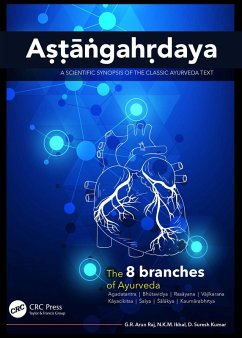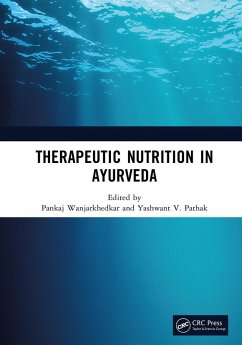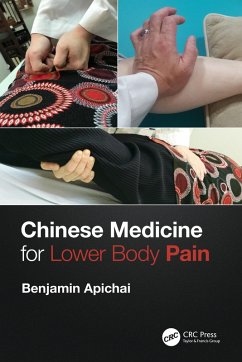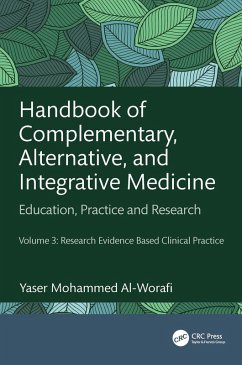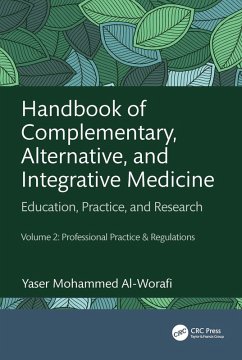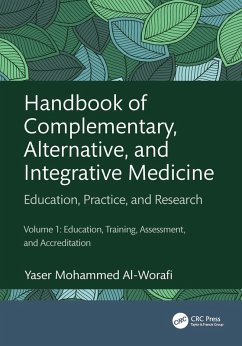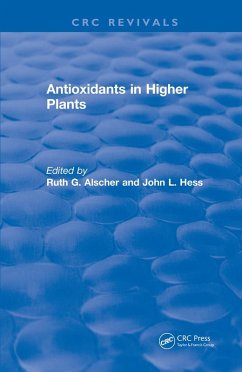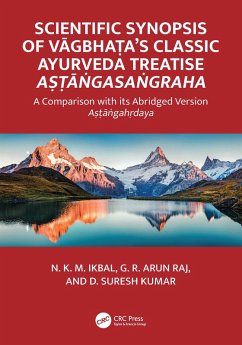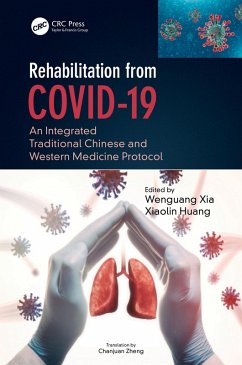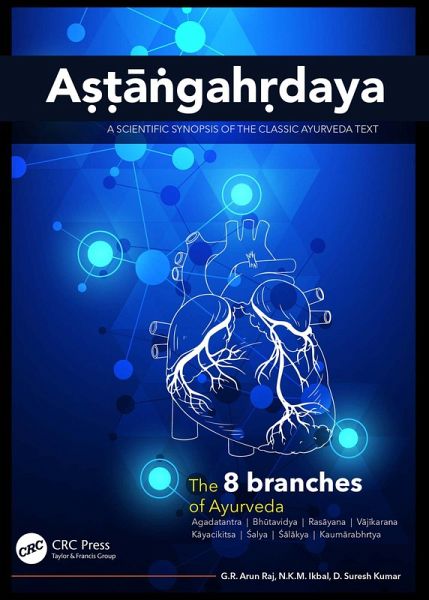
A¿¿a¿gah¿daya (eBook, ePUB)
A Scientific Synopsis of the Classic Ayurveda Text
Versandkostenfrei!
Sofort per Download lieferbar
73,95 €
inkl. MwSt.
Weitere Ausgaben:

PAYBACK Punkte
37 °P sammeln!
Worldwide interest in Ayurveda is on the rise, ever since the World Health Organization adopted the Alma Ata Declaration in 1978. Ayurveda is increasingly being adopted and many phytotherapy schools in Europe and the Americas teach Ayurveda as a wellness system. Considering the prominent position that A¿¿ägah¿daya occupies in Ayurveda, a scientific synopsis of this masterpiece is now presented before the world of Ayurveda.In eight comprehensive chapters, A¿¿ägah¿daya: A Scientific Synopsis of the Classic Ayurveda Text presents a lucid summary of the teachings of Vagbhäa. Ayurvedic vie...
Worldwide interest in Ayurveda is on the rise, ever since the World Health Organization adopted the Alma Ata Declaration in 1978. Ayurveda is increasingly being adopted and many phytotherapy schools in Europe and the Americas teach Ayurveda as a wellness system. Considering the prominent position that A¿¿ägah¿daya occupies in Ayurveda, a scientific synopsis of this masterpiece is now presented before the world of Ayurveda.
In eight comprehensive chapters, A¿¿ägah¿daya: A Scientific Synopsis of the Classic Ayurveda Text presents a lucid summary of the teachings of Vagbhäa. Ayurvedic view of the human body, basic principles of Ayurveda, surgical armamentarium, diagnosis and treatment of diseases, herbs and other medicinal substances used in the preparation of various dosage forms, ayurvedic pharmaceutialcs, ayurvedic approach to food fortification, salient features of A¿¿ägah¿daya and a roadmap for the future are among the topics discussed.
Key Features:
The voluminous information pertaining to the subjects of the various chapters is presented in the form of many tables for ready reference and quick survey. This book provides a helping hand to those interested in rediscovering the teachings of Vagbhäa and is a great resource for researchers of medicine, traditional and alternative medicine, pharmacology and drug discovery.
In eight comprehensive chapters, A¿¿ägah¿daya: A Scientific Synopsis of the Classic Ayurveda Text presents a lucid summary of the teachings of Vagbhäa. Ayurvedic view of the human body, basic principles of Ayurveda, surgical armamentarium, diagnosis and treatment of diseases, herbs and other medicinal substances used in the preparation of various dosage forms, ayurvedic pharmaceutialcs, ayurvedic approach to food fortification, salient features of A¿¿ägah¿daya and a roadmap for the future are among the topics discussed.
Key Features:
- Presents the ayurvedic view of conception and the human body
- Discusses aspects of ayurvedic pharmaceuticals
- Examines diagnosis of diseases, lines of treatment, prognosis of diseases, signs of imminent death, management of mishaps and treatment of new diseases
The voluminous information pertaining to the subjects of the various chapters is presented in the form of many tables for ready reference and quick survey. This book provides a helping hand to those interested in rediscovering the teachings of Vagbhäa and is a great resource for researchers of medicine, traditional and alternative medicine, pharmacology and drug discovery.
Dieser Download kann aus rechtlichen Gründen nur mit Rechnungsadresse in A, B, BG, CY, CZ, D, DK, EW, E, FIN, F, GR, HR, H, IRL, I, LT, L, LR, M, NL, PL, P, R, S, SLO, SK ausgeliefert werden.




